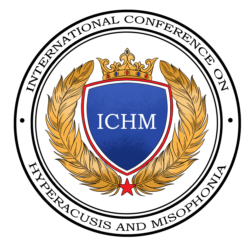Dr. Hashir Aazh

In collaborative work between researchers in audiology and clinical psychology, Aazh and Allott (2016) published an audiologist-delivered CBT protocol for hyperacusis rehabilitation. Aazh et al. (2016) assessed patient’s views about the effectiveness of audiologist-delivered CBT for the management of tinnitus and hyperacusis. Of 75 patients who received audiologist-delivered CBT as a part of their tinnitus and/or hyperacusis rehabilitation, 56% ranked its effectiveness as 5/5 (where 1 represents no effect and 5 represents very effective) and a further 29% as 4/5. A comparison of patients’ feedback about the effectiveness of audiologist-led CBT between patients with tinnitus only and those with hyperacusis (with or without tinnitus) showed no significant difference (p = 0.05).

Professor Brian C.J. Moore
Dr. Aazh’s team (Royal Surrey County Hospital, UK) discussed the procedures involved in audiologist-delivered CBT and its clinical effectiveness (Aazh & Moore 2018b; Aazh & Moore 2018a). The treatment involves six CBT sessions across six weeks. Each session involve individual face-to-face interaction with an audiologist and lasts for about 60 minutes. Although audiologist-delivered CBT is resource intensive, only 17% of patients receive the full treatment, since only patients with clear tinnitus and/or hyperacusis-related distress are offered the treatment, and some decline the treatment or drop out. The audiologist-delivered CBT using this protocol showed promising results with regard to changes in HQ score. It is therefore, recommended that researchers consider using this protocol when designing future randomized controlled trials assessing the effect of audiologist-delivered CBT for hyperacusis management. Details of audiologist-delivered CBT are described elsewhere.
References
Aazh, H., & Allott, R. (2016).
Cognitive behavioural therapy in management of hyperacusis: a narrative review and clinical implementation.
Auditory and Vestibular Research, 25, 63-74.
Aazh, H., & Moore, B. C. J. (2018a).
Effectiveness of audiologist-delivered cognitive behavioral therapy for tinnitus and hyperacusis rehabilitation: outcomes for patients treated in routine practice
American Journal of Audiolgy, [Epub ahead of print], 1-12.
Aazh, H., & Moore, B. C. J. (2018b).
Proportion and characteristics of patients who were offered, enrolled in and completed audiologist-delivered cognitive behavioural therapy for tinnitus and hyperacusis rehabilitation in a specialist UK clinic.
Int J Audiol, 1-11.
Aazh, H., Moore, B. C. J., Lammaing, K., et al. (2016).
Tinnitus and hyperacusis therapy in a UK National Health Service audiology department: Patients’ evaluations of the effectiveness of treatments.
International Journal of Audiology, 55, 514-522.

